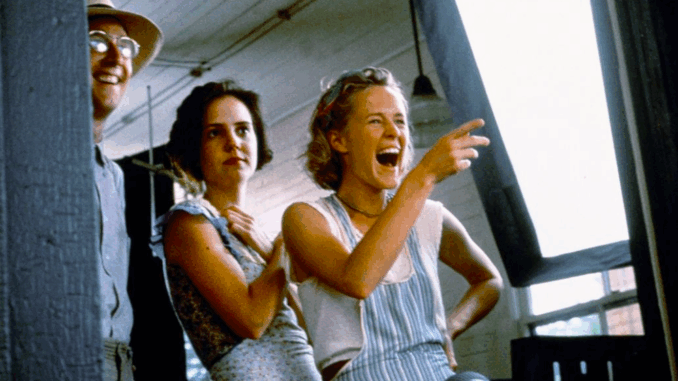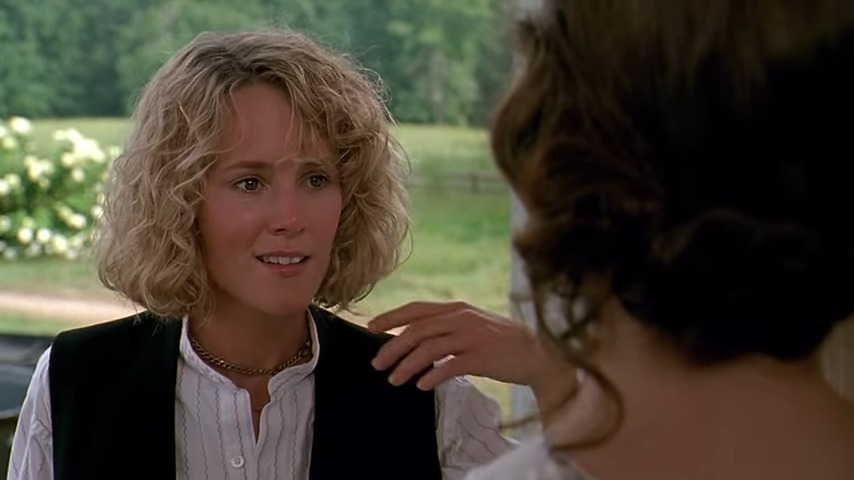
The 1991 classic Fried Green Tomatoes remains a powerful ode to women’s strength, resilience, and solidarity. Based on Fannie Flagg’s beloved novel Fried Green Tomatoes at the Whistle Stop Cafe, the film continues to enchant new generations with its heartfelt storytelling and timeless themes of friendship, identity, and empowerment.
Set across two eras — the 1920s–30s in the small Southern town of Whistle Stop, Alabama, and the 1980s in suburban America — the film gracefully weaves together two parallel stories. In the present day, Evelyn Couch (Kathy Bates), a middle-aged woman struggling with self-worth, encounters the wise and witty Ninny Threadgoode (Jessica Tandy) in a nursing home. Through Ninny’s captivating tales of the past, Evelyn is drawn into the world of Idgie Threadgoode (Mary Stuart Masterson) and Ruth Jamison (Mary-Louise Parker) — two women whose friendship defied convention and redefined love.
Director Jon Avnet brings Fannie Flagg’s world to life with tenderness and authenticity. The Southern landscapes, sun-drenched cinematography, and soulful soundtrack immerse viewers in a bygone era, while the intergenerational storytelling bridges the gap between past and present. Avnet masterfully explores the complexities of female relationships — how love, loss, grief, and rebellion can unite women in their fight against societal expectations.

Kathy Bates delivers one of her most relatable performances as Evelyn, embodying the frustration and quiet desperation of women who feel unseen. Her transformation — from a timid housewife to a bold, self-assured woman who takes charge of her destiny — becomes one of the film’s most inspiring arcs.
Yet the emotional heart of Fried Green Tomatoes lies in the bond between Idgie and Ruth. Their connection transcends friendship, carrying a tenderness and intimacy rarely portrayed so honestly in early ’90s cinema. Whether or not audiences interpret their relationship as romantic, it’s undeniable that their love for each other defies the norms of their time — a quiet, courageous act of resistance against the confines of gender roles and societal judgment.
Beyond its themes of empowerment, the film also touches on issues of racism, domestic abuse, and justice — reminding viewers that courage takes many forms. From standing up to violence to offering kindness across racial lines, Fried Green Tomatoes celebrates the everyday heroism of women who dare to live authentically.
More than three decades later, the film continues to resonate deeply. Its message — that true courage and love often bloom in unexpected places — still feels relevant today. Like the humble Whistle Stop Café that serves fried green tomatoes with warmth and heart, the story invites us to find beauty, belonging, and strength in the most ordinary corners of life.
